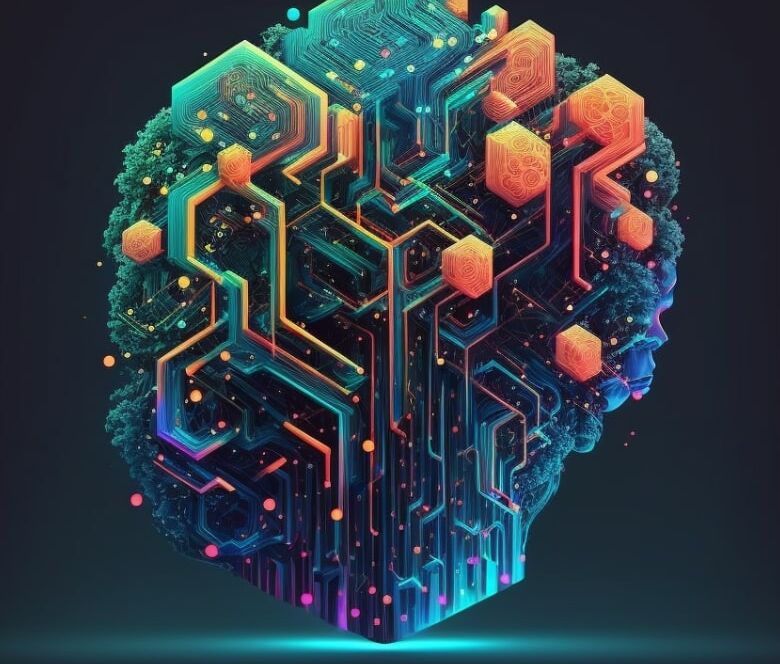Machine intelligence, commonly referred to as artificial intelligence (AI), is transforming nearly every aspect of modern life. From enhancing daily tasks to tackling complex global challenges, machine intelligence has the potential to revolutionize how we work, live, and interact. The rapid advancements in AI technologies are pushing boundaries, enabling machines to not only process information but also learn, adapt, and even make decisions. This article explores how machine intelligence is revolutionizing life across various domains, from healthcare and transportation to education and personal convenience.


Transforming Healthcare
Machine intelligence is driving a significant transformation in healthcare, making it more efficient, accurate, and personalized. AI-powered algorithms can analyze medical data to detect patterns and predict patient outcomes. For instance, machine learning models are now used to detect diseases like cancer at earlier stages by analyzing medical images, such as mammograms or CT scans, often with greater accuracy than human specialists. This early detection can save lives by providing timely intervention.
AI also plays a critical role in drug discovery. Traditional drug development processes can take years and are extremely costly, but AI algorithms can analyze large datasets to identify potential drug candidates and predict their effectiveness. This accelerates the process of bringing new treatments to market. Additionally, machine intelligence enables personalized medicine, where treatments are tailored to individual patients based on their genetic makeup, lifestyle, and health history, leading to better health outcomes.
Machine intelligence is driving a significant transformation in healthcare, making it more efficient, accurate, and personalized
Enhancing Transportation and Mobility
Machine intelligence is revolutionizing transportation, making it safer, more efficient, and accessible. One of the most prominent applications is in the development of autonomous vehicles. Self-driving cars, powered by AI, can navigate roads, avoid obstacles, and follow traffic rules with minimal human intervention. This technology has the potential to reduce traffic accidents, most of which are caused by human error, thereby saving thousands of lives each year.
AI is also transforming logistics and supply chain management. By analyzing traffic patterns, weather conditions, and delivery routes, AI can optimize transportation schedules, reducing fuel consumption and delivery times. In public transportation, AI-driven systems can predict demand, adjust schedules in real-time, and improve passenger experiences by reducing overcrowding and minimizing delays.

Revolutionizing Education
Education is another field being transformed by machine intelligence. AI-powered tools and platforms enable personalized learning experiences that adapt to the individual needs of students. For instance, adaptive learning software can assess a student’s strengths and weaknesses and customize lessons accordingly, providing a more tailored approach to education. This helps students learn at their own pace and improve their understanding of subjects.
Moreover, AI-driven chatbots and virtual assistants are now being used to provide instant feedback on assignments, answer questions, and help students with study plans. This not only frees up time for teachers to focus on more complex aspects of teaching but also ensures that students receive continuous support throughout their learning journey.
Revolutionizing Personal Convenience
Machine intelligence has also made its way into everyday life, enhancing convenience and productivity. Virtual assistants like Siri, Alexa, and Google Assistant use natural language processing (NLP) to understand voice commands, allowing users to perform tasks hands-free, from setting reminders and playing music to controlling smart home devices. These assistants are continuously improving, becoming more context-aware and capable of providing personalized responses based on user preferences.
Moreover, AI-powered recommendation systems are prevalent in online shopping, streaming services, and social media. These systems analyze user behavior to suggest products, movies, music, or content that aligns with individual preferences, making it easier to find things that interest us. While some argue that this can lead to “filter bubbles,” where users are only exposed to content that matches their interests, it undeniably enhances user experience by making interactions more relevant.
Tackling Global Challenges
Beyond individual benefits, machine intelligence is being applied to solve some of the world’s most pressing challenges. In environmental science, AI is used to monitor deforestation, track wildlife populations, and predict the impacts of climate change. For example, machine learning models can analyze satellite images to detect illegal logging activities or changes in forest cover, enabling faster and more effective conservation efforts.
In agriculture, AI-driven systems help optimize crop management by predicting weather patterns, detecting plant diseases, and recommending optimal irrigation practices. This leads to increased crop yields and sustainable farming practices, which are crucial for feeding a growing global population.
Machine intelligence is revolutionizing life by driving advancements across various fields, from healthcare and transportation to education and personal convenience. Its applications are not just enhancing the efficiency and effectiveness of existing processes but also opening up new possibilities that were previously unimaginable. As AI continues to evolve, it has the potential to address complex global challenges and improve the quality of life for people around the world.
However, the widespread adoption of machine intelligence also brings challenges, such as ethical considerations, data privacy, and the need to prevent algorithmic bias. As we harness the power of machine intelligence, it is essential to approach its development responsibly to ensure that the benefits are shared equitably and that potential risks are mitigated. In doing so, we can truly revolutionize life with machine intelligence and create a better future for all.



